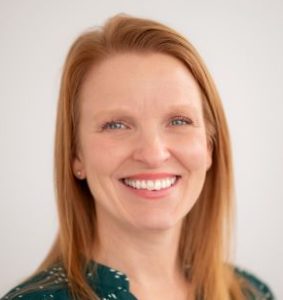
Alzheimer’s disease may be among the most-feared diagnoses for people of a certain age, one that for many has been instantaneously life-altering.
But a beautiful story this week in the Washington Post forces us to view today’s Alzheimer’s patients through a new lens.
Those who have lived through the last six decades of modern medicine have seen many cancers all-but conquered. They’ve watched as diseases like polio, for which they still bear inoculation scars, were eradicated around the world.
They expect no less for Alzheimer’s in the next few years or decades, and they’re gravitating toward new treatments and lifestyle improvements to extend the time they have in the disease’s early stage.
If you want to feel inspired, read the story of Rebecca Chop, a university president who stepped down from her role post-diagnosis then went to work following all the advice her doctor could give her to stave off more significant cognitive decline.
They don’t want to be coddled and they don’t want to acquiesce to the disease and all its stereotypes. Like the baby boomers they are, they want to challenge the norm and redefine the experience of Alzheimer’s itself.
I read this article around the same time I also happened to be reviewing a wrap-up of our McKnight’s Pinnacle Awards roundtable held in March. We’re a few weeks removed now, but I keep thinking of something Dan Reingold, the president and CEO of RiverSpring Living said at the time. He noted, almost in passing, how baby boomers had changed almost everything else in their generation. Now, he said, they’re going to blow up our staid approach to long-term care.
The story of Chop and fellow Alzheimer’s patients like her couldn’t make this more clear. Even as some nursing homes dedicate more skilled space for dementia patients, patients like Chop are showing us they’ll find a way to put off the inevitable.
Certainly, there are many Americans right now, today, who very much need more supportive care for cognitive issues, Alzheimer’s among them.
The Alzheimer’s Association predicts the number of Americans 65 and over with the disease will almost double by 2050, hitting 12.7 million. It feels almost silly not to prepare for the wave of patients that is expected to build each year.
But nursing homes will face a real challenge in trying to judge the future demand for such services.
Even the folks at the association say that figure is “barring the development of medical breakthroughs to prevent or cure Alzheimer’s disease,” a disclaimer I don’t remember seeing in past years.
Today, more testing is available to help spot the disease and start interventions sooner, and some treatments have been approved for Alzheimer’s (even if the jury is still out on how much Aduhelm can do to delay decline).
But there’s one more important factor to consider, and it’s the hardest one to measure: Patients like Rebecca Chop fully expect to beat the disease back and live life on their own terms for as long as they can.
Skilled nursing providers will have to be nimble and continue to put the patient — meaning, the whole patient — first if they want to be a part of the Alzheimer’s revolution.
Kimberly Marselas is senior editor of McKnight’s Long-Term Care News.
Opinions expressed in McKnight’s Long-Term Care News are not necessarily those of McKnight’s.




